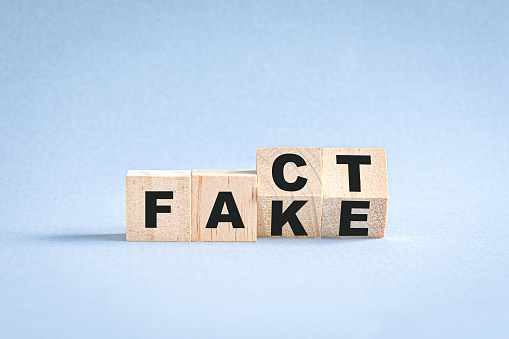The world we live in is workable to only those who can innovate and adapt themselves to its dynamism. It is a fast-paced and unforgiving ecosystem. Only if you can market yourself and be visible to your audiences can you be relevant to your environment.
The adage “out of sight, out of mind” holds true for your social media existence. It is also relevant for the big-shot companies that have to stay afloat in the fierce competition. New entities are germinating in every field. The existing establishments have to look out for the latest trends and be a part of the bandwagon at the earliest.
Selling their USPs becomes the top prerogative for companies that have too much at stake. Sometimes, demand outweighs quality assurance. There is not much time to waste (or wait). The trust of consumers in the company’s legacy acts as a cushion for the delegates.
For instance, women filed several thousand lawsuits against Johnson & Johnson, claiming that they contracted ovarian cancer after prolonged use of one of their products. According to the news outlet Reuters, J&J knew about the existence of traces of asbestos in its talcum powder as early as 1970 but did not address the issue.
Can such behaviors fall under negligence? Or are these undertaken measured risks?
The Smart Gameplay Of Misleading Advertisements
To crack the perfect marketing strategy for their products, brands and businesses shell out millions of dollars. In some cases, the mission is to celebrate the product and not the target audience. This is especially true when the brand knows its loyal customer base in and out and extrapolates the consumers’ trust to introduce a new idea.
The thin line between puffery and actionable false advertisements is also well exploited.
Puffery refers to excessive claims of bragging, such as “the flavor that makes you melt,” or subjective qualitative labels like “the best.” Although the basic standards and understandings vary, the accepted meaning of “puffery” is a phrase for product performance that is non-quantifiable.
If an advertisement claim proves to be either true or false, then it can be actionable. If the statement in question is a measurable fact and is verifiable, then taking legal action can be the way ahead.
Whether a reasonable person would rely on the claims and make a buy is another factor in such situations.
A Few Recent Examples
Some businesses can go to any length to reach out to customers and make sales. In some cases, wary customers do find the loophole in the advertisements, but often, even the more educated consumers take the bait.
Pharmaceutical giants like Abbott Laboratories and Mead Johnson are being sued for the fatal risks posed by their cow-based baby formulas. Certain brands of baby formula that contain Similac and Enfamil(manufactured by Abbott Laboratories and Mead Johnson) have been found to result in Necrotizing Enterocolitis (NEC), a fatal digestive disorder, in premature infants.
The two companies are being sued by bereaved parents for neglecting to warn consumers and healthcare professionals about the dangers of their infant formulas. TorHoerman Law, LLC is a legal firm that represents individuals harmed due to medical negligence. As per their reports, the Toxic Baby Formula NEC lawsuit is growing by 30 cases each month on average.
Similarly, L’Oreal USA using the phrase “clinically proven” presents a classic example of false advertising. It stated that its Genifique line of products could result in “visibly younger skin in just seven days” by targeting the users’ genes.
The claims were never substantiated by adequate research or evidence. As a result, banning L’Oreal USA from making any anti-aging statements in the absence of compelling scientific evidence to support its claims was the step taken.
Coca-Cola, too, promoted its beverage, Vitaminwater, as being healthy for the body. It claimed that it was a mixture of essential ‘vitamins’ and ‘water.’ According to the CSPI (Center for Science in the Public Interest), fewer than 0.5% of the beverage’s ingredients were nutritious; sugar being its chief component.
This discussion would be incomplete without mentioning Volkswagen’s marketing gimmick to promote its line of ‘clean diesel’ cars. The Federal Trade Commission stated that during this seven-year period, Volkswagen rigged its cars to flout the high emission tests and put them on the road.
The blatant denial from the concerned authorities, in some cases, is alarming.
What Are Your Options?
The Federal Trade Commission was established to protect the public against dishonest or unfair commercial practices, as well as from unfair methods of competition.
The federal Lanham Act ensures provisions for civil lawsuits in cases of false or misleading marketing strategies that “misrepresents the nature, characteristics, qualities, or geographic origin” of goods or services.
Besides the laws by the government and the state agencies, a consumer can also bring in private lawsuits if they feel violated by false claims by brands.
Conclusion
Today, being visible is as good as being alive. A lot of money goes behind the exceptional technological advancements and ambitious ideas that have revolutionized mankind. These companies can not afford poor returns on their high investments.
Marketing strategies and advertisements become very important to make the entities attractive to consumers. With the launch of new products every minute, all businesses want a slice of the consumer pie.
On some days, you will be the consumer, and on some days, it will consume you!





